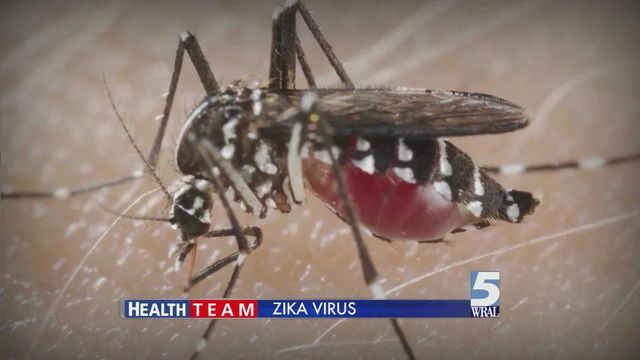Health Team
Q&A: Dr. Mask answers questions about Zika virus
WRAL's Dr. Allen Mask answers some important questions about how the virus is spreading and how Americans should respond.
Posted — UpdatedRALEIGH, N.C. — Declaring that the Zika virus is "spreading explosively," the World Health Organization announced it will hold an emergency meeting of independent experts Monday to decide if the outbreak should be declared an international health emergency.
WRAL's Dr. Allen Mask answers some important questions about how the virus is spreading and how Americans should respond.
Question: What are the symptoms of Zika and how is it transmitted?
Answer: Zika is a virus spread to people primarily through the bite of the Aedes mosquito. Only about 20 percent of people infected with Zika will get sick. Even then, the illness is typically mild. For that reason, many people will not realize they have been infected. The most common symptoms are fever, rash, joint pain and conjunctivitis or red eyes. Symptoms usually begin two to seven days after being bitten by an infected mosquito.
Q: Are there certain people who are more at risk than others?
A: Anyone traveling to an area where the Zika virus is found is at risk. Those areas include Cape Verde, Samoa, Barbados, Dominican Republic, Guadeloupe, Haiti, Martinique, Puerto Rico, Saint Martin, U.S. Virgin Islands, El Salvador, Guatemala, Honduras, Panama, Mexico, Bolivia, Brazil, Colombia, Ecuador, French Guiana, Guyana, Paraguay, Suriname and Venezuela.
We are mostly concerned about pregnant women who can transmit the virus to their baby. There is some evidence it causes microcephaly, when a baby is born with an unusually small head, or brain damage or death to the fetus.
Q: If it comes into our area, what can we do to prevent infection?
A: There is no vaccine or treatment of Zika. The best prevention is to avoid the specific areas where the Zika virus has been found, including Brazil and South America. You can prevent the diseases spread by mosquitos by wearing long-sleeved shirts and long pants, keeping windows closed and using an insect repellent like 20 percent DEET.
• Credits
Copyright 2024 by Capitol Broadcasting Company. All rights reserved. This material may not be published, broadcast, rewritten or redistributed.





